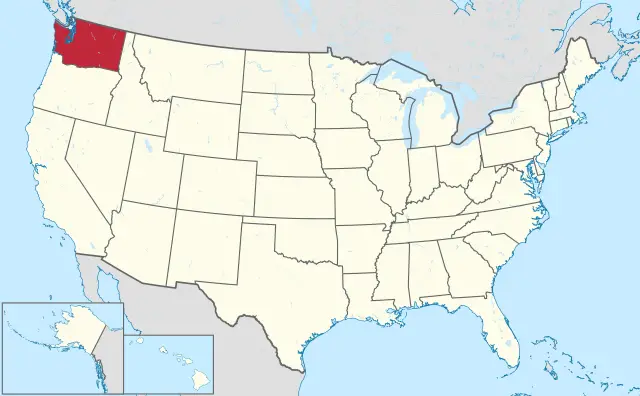Squatter’s rights, also known as adverse possession, is a legal concept that grants possession of a property to a person who has been occupying it without permission for a certain period of time. Every state has its own set of laws regulating squatter’s rights, and North Dakota is no exception. Understanding these laws is essential, whether you are a property owner concerned about unauthorized visitors or a squatter looking to claim legal ownership of a property you have been occupying for years. This article will explore the ins and outs of squatter’s rights in North Dakota, including the requirements for adverse possession, the consequences of filing a claim, and the steps property owners can take to protect their land from squatters.
Squatters rights refer to the legal concept that a person who occupies or possesses a property without the owner’s consent for a certain period may claim ownership over the property. In North Dakota, a person who has continuously lived in a property for at least ten years can apply for adverse possession or “squatters rights” and claim ownership over the property. The person must prove that they have maintained exclusive and continuous possession, openly and visibly, and without the owner’s permission. The claimant must also show that they have paid property taxes and made necessary improvements to the property. However, squatting is unlawful and can result in eviction, trespassing charges, and damages, making it important to seek legal advice before claiming squatters rights.
What is the squatting/squatter?
Squatting, also known as occupying or living on someone else’s property without their permission, has been a controversial issue for years. Squatters are individuals who set up temporary or permanent residence in vacant or abandoned properties, usually without legal permission, and use the space for various purposes. Some squatters seek shelter in empty buildings because they cannot afford housing or have been evicted from their rental homes, while others may do so as a political protest against the current state of property ownership. Squatting is considered illegal in most countries, and property owners have the right to evict squatters and take legal action against them. However, the issue of squatting remains complex, as it raises questions about housing insecurity and the right to shelter.
What is an example of a squatter?
An example of a squatter is someone who occupies a piece of land or a building without ownership or permission to do so. Squatters are often individuals or families who are looking for shelter and a place to live but cannot afford to buy or rent their own property. In some cases, squatters move into abandoned or unused buildings, such as warehouses or empty homes. Squatting is considered illegal in many countries, but it is also a common social issue that leads to public debate and controversy. Some people argue that squatters have the right to housing and should not be punished for seeking shelter, while others claim that squatting can lead to property damage, safety hazards, and other negative consequences.
What is Adverse possession in North Dakota?
Adverse possession in North Dakota is a legal principle that allows a person to legally obtain ownership of land that they have been occupying for a minimum of 20 years continuously. The theory behind adverse possession is that if an individual has been using and maintaining the land for this extended period of time, it is unlikely that the true owner will need or demand the property back. However, this claim must be made openly and notoriously, meaning that the person must act as if they are the true owner of the property, paying taxes and taking any necessary measures to maintain the land. Additionally, the person claiming adverse possession must prove that they possess the land exclusively, continuously, and without the consent of the true owner. Adverse possession can be a controversial issue, and it’s crucial to have a knowledgeable attorney to navigate the complicated legal procedures and requirements.
Is it legal to squat in North Dakota?
As a state in the United States, North Dakota has laws that prohibit unauthorized occupation of private or public property, including squatting. Squatting in North Dakota can result in criminal charges of trespassing, unlawful entry, and burglary, which may carry fines and even imprisonment. Furthermore, squatting is considered a violation of the property owner’s rights, and the owner has the legal right to evict squatters through force or legal procedures. Therefore, it is illegal to squat in North Dakota, and individuals who engage in this unauthorized activity risk facing severe legal consequences.
Can police remove squatters in North Dakota?
In North Dakota, police have the authority to remove squatters from a property if they have evidence that the squatters are illegally occupying it. Squatting is a criminal offense in North Dakota, and police may be called upon by the property owner to remove the trespassers. However, the eviction process is different from that of a typical tenant, and the property owner may need to provide evidence and obtain a court order to remove the squatters legally. Additionally, if the squatters can prove that they have been in possession of the property for an extended period, they may have a legal right to stay, which can make the process more complicated. In any case, it is important for property owners to contact the police and a lawyer if they find themselves dealing with squatters, to ensure that proper procedures are followed and their rights are protected.
How to evict squatter in North Dakota?
If you are a property owner in North Dakota and have a squatter occupying your property, you have the right to evict them lawfully. The first step is to serve a Notice to Quit, which informs the squatter that they must vacate the property within a given time frame (usually 30 days) or face legal action. If the squatter does not move out by the deadline, you can file a forcible entry and detainer action with the local district court. This legal action will require you to provide evidence that you are the property owner and the squatter has no legal right to occupy it. Once the court grants an eviction order, you can obtain a writ of restitution, which gives you the legal right to physically remove the squatter and their belongings from your property. It’s always advisable to hire an experienced attorney who specializes in real estate law to help you navigate the legal process and ensure a smooth eviction.
FAQ
Q: What are squatters rights in North Dakota?
A: Squatters rights refer to the legal rights of a person who occupies land or property without the owner’s permission or knowledge. In North Dakota, the law on squatters rights is quite complex and requires a thorough understanding of the legal system. However, under certain circumstances, squatters may be able to gain legal possession of the land they occupy.
Q: How long does a squatter need to occupy land before they can claim squatters rights in North Dakota?
A: North Dakota law does not specify a specific duration of time for acquiring squatters rights. It considers several factors, including the nature and duration of the occupation, the invader’s intent, and the landowner’s knowledge of the invasion. However, North Dakota law considers open, notorious, exclusive, and continuous occupation for a certain period as a compelling factor in deciding the claim of squatters rights.
Q: What rights do squatters have in North Dakota?
A: Squatters have limited legal rights in North Dakota. They cannot legally transfer, sell or mortgage the land they occupy. However, if they can show continuous, open, notorious, and exclusive occupation of land, they may be entitled to claim adverse possession over the land they occupy.
Q: Can a landowner evict a squatter in North Dakota?
A: Yes, a landowner can evict a squatter in North Dakota through a legal process. Landowners must follow the state’s legal eviction process to remove the squatter and regain possession of the land.
Q: Can a squatter claim ownership of the land in North Dakota?
A: Yes, if a squatter can show continuous, open, notorious, and exclusive occupation of land for a certain period, they may be eligible to claim adverse possession. In such cases, the squatter can petition the court to transfer ownership of the land.
Sources
- North Dakota Century Code – § 47-06-01.1
- North Dakota Legal Self Help Center – Adverse Possession
- North Dakota Attorney General – Unlawful Occupation of Land (Squatters)
Squatter rights in other states




